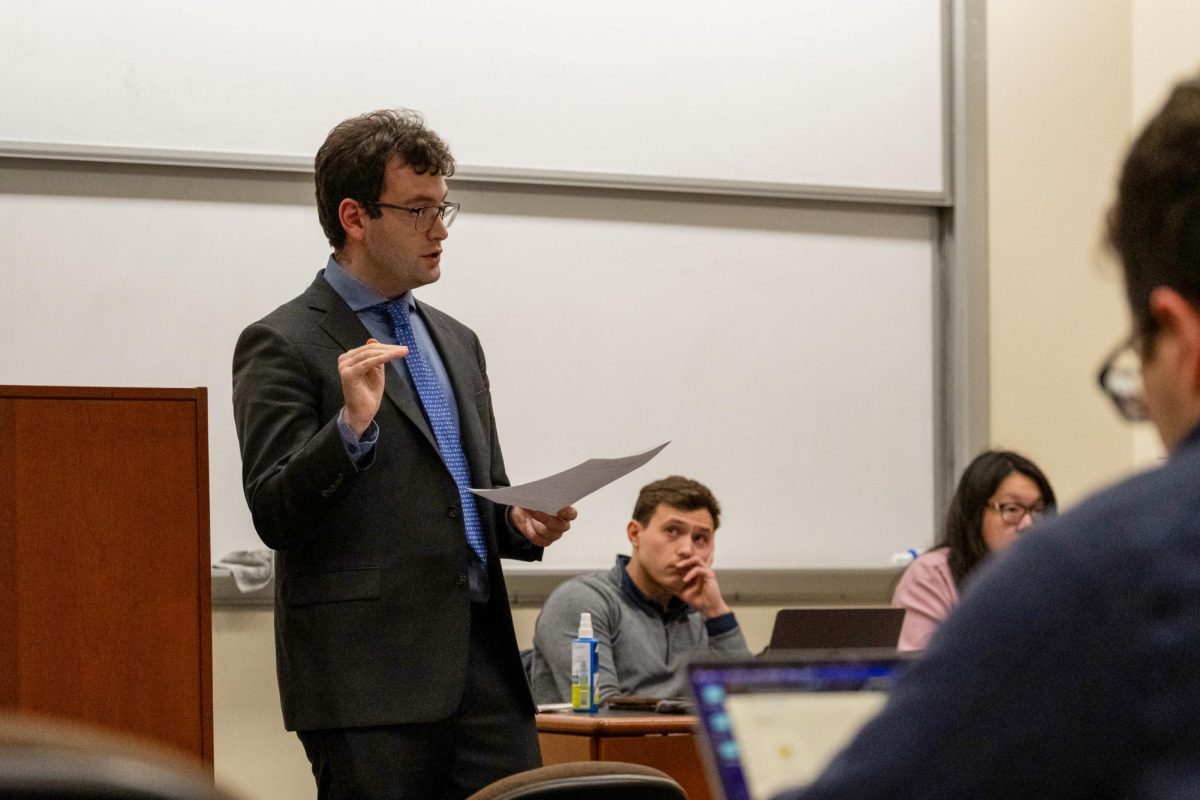Administrators will not recognize a group of graduate student employees seeking to form a union, Provost Forrest Maltzman said Friday.
Maltzman said in a statement that officials would not recognize a graduate student union because those students work – primarily as teaching and research assistants – as part of an educational, not a professional, relationship with the University.
“A collective bargaining process would insert a third party into the relationship between students and faculty members in key elements of the educational experience,” Maltzman said in the release. “I believe it would inevitably limit the ability of our schools and faculty to creatively support our students and would disrupt the mentoring opportunities that are so important to building world-class graduate educational programs.”
The statement echoed a letter Maltzman sent to graduate student organizers Tuesday in which he declined, on University President Thomas LeBlanc’s behalf, to support the unionization effort. In the letter, which was obtained by The Hatchet, Maltzman said it would not be appropriate to create a collective bargaining process to “shape the graduate student experience.”
Graduate student workers first launched efforts to unionize in the fall, citing low wages and inadequate health care plans as reasons to collectively bargain.
The University’s opposition means that unionization organizers would be forced to bring their case to the National Labor Relations Board – which settles labor disputes – to determine if graduate students would be able to vote on whether to form a union.
Maltzman said graduate students have yet to submit a petition to the NLRB and that if they did, the University would “fully participate in that process” to argue that graduate student compensation packages are “teaching and research opportunities that are offered to our best students as an integral part of their educational experience.”
Officials made a similar argument against unionization when resident advisers seeking to unionize filed a petition with the NLRB in 2016. Officials argued at the time that RAs worked as part of their educational experience and were not legal employees.
Last spring, the NLRB ruled in favor of resident advisers – setting a national precedent for undergraduate students at private universities to collectively bargain.
Graduation student unions have also won NLRB approval in the past, but organizers may face hurdles this year because the board is now primarily comprised of Republicans, who have historically been more skeptical of student unions.
In place of unionization, Maltzman said he asked academic administrators to develop “mechanisms” to ensure that graduate students have formal opportunities to address concerns with the University.
“This University is committed to graduate student education and much of this is based upon the creation of teaching and research opportunities,” he said.
Graduate student organizers wrote in a letter Thursday that they are disappointed that the University refused to recognize their “essential role” at GW in opting not to support the union.
“You have chosen to disengage on serious issues that are affecting the day-to-day lives of hundreds of graduate student workers,” the letter read.
The group of graduate students called for fair treatment in their working conditions, health care and pay – issues they said currently hinder their ability to receive a high-quality education.
The letter, which was obtained by The Hatchet, was also signed by student organizations like the GW College Democrats, the Feminist Student Union and GW Queer Radicals.
“Addressing these concerns will not only enable us to provide higher quality education to our students, but will also ensure that GW remains competitive with other institutions of higher education,” the letter read.




